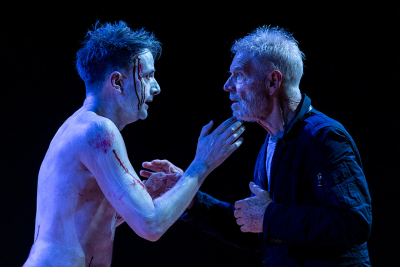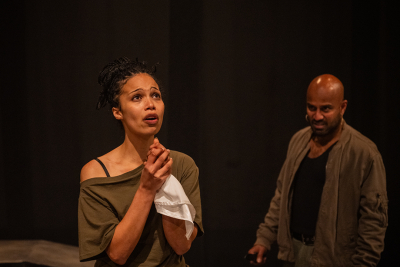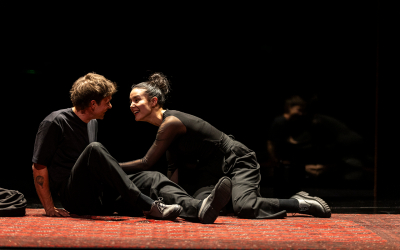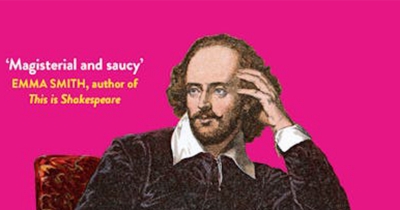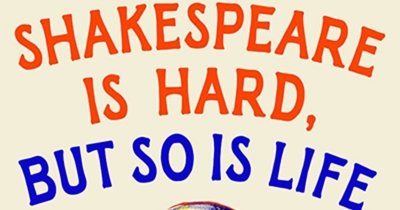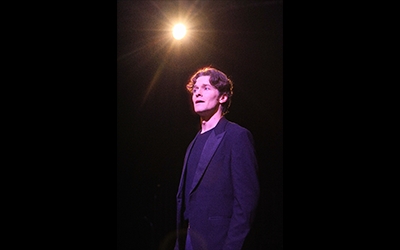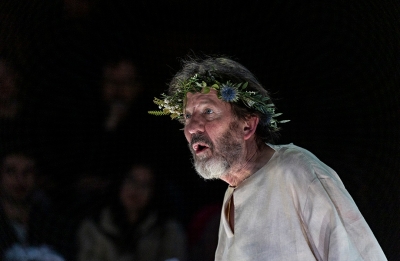William Shakespeare
This week, on The ABR Podcast, we feature a special essay by Stuart Kells, titled ‘Less an author than a milieu: Reading Shakespeare in the New World’. Kells discusses the thorny question of the authorship of the First Folio. While some devoted Shakespeareans insist that the First Folio was authored by Shakespeare, Kells points to compelling evidence that Shakespeare was instead a ‘middle stage in a multi-step dramaturgical production process’. ‘Shakespeare is not a hoax,’ Kells observes, ‘but he is hoaxy.’
... (read more)Shakespeare is not a hoax, but he is hoaxy. The field of Shakespeare studies is brimming with fibs and fables. There are the ‘Shakespeare heretics’ who have posited, on flimsy evidence, that Henry Neville, Francis Bacon, Edward de Vere, or someone else was the ‘secret author’ of William Shakespeare’s works. There have been plenty of frauds and near-frauds on the ‘orthodox’ side of Shakespeare studies as well. A.L. Rowse, for example, simply made up an elaborate back story for the ‘Dark Lady’ of Shakespeare’s sonnets.
... (read more)The True History of the Life and Death of King Lear and his Three Daughters
On the wooden floorboards of a bare and slightly raised stage, a king draws a chalk circle: perfect, empty, unbroken. Behind him, twelve empty seats wait and watch. Before him, the audience.
The empty circle is Lear’s kingdom, but it is also a diagram of a disastrous decision to carve up his family alongside his lands and wealth. The circle haunts th ...
You can make the case that Othello’s handkerchief is the most consequential prop in all of Shakespeare. Yorick’s skull and Macbeth’s floating dagger are more iconic, but neither is integral to the action of the plays in which they feature. The handkerchief, on the other hand, really is the whole of the tragedy of Othello.
... (read more)What image does Romeo and Juliet conjure for you? How high is your balcony? In Shakespeare’s play, vertical distance is a nod to the Petrarchan courtly love conventions that placed the lady on a pedestal. But, like a lot of conventions, Shakespeare calls up this one only to implode it.
... (read more)In 1588, with England facing the threat of Spanish invasion, Elizabeth I visited her troops assembled at Tilbury to deliver some rousing words: ‘I know I have the body of a weak and feeble woman; but I have the heart and stomach of a king, and of a king of England too.’ This assertion, the idea that the body politic was eternal and existed in a sacred realm beyond historical time, was ideally suited to a moment of national crisis. But rhetorical force notwithstanding, Elizabeth was propounding a fiction. In Shakespeare’s Tragic Art, Rhodri Lewis explores how William Shakespeare was able to use the tragic form to interrogate those ‘fictions of order, stability, and perpetuity’ that humans deploy in their desire to make sense of a random universe. Beginning with Titus Andronicus and ending with Coriolanus, Lewis shows how each play is a response to a particular set of aesthetic challenges. Shakespeare’s motivations lay in exploring the possibilities of the tragic genre. Through plays as various as Romeo and Juliet, Hamlet, and King Lear, he explored ‘never-settled notions’ of what tragedy could achieve.
... (read more)Straight Acting by Will Tosh & The Hollow Crown by Eliot A. Cohen
Shakespeare’s world view – his multiplicity and pluralism, all that teeming vitality crashing up against itself – acts like a tabula rasa even when it is precisely the opposite: one can project oneself onto his work not because it is a blank slate but because it contains multitudes. When it comes to his actual opinions, however – his inclinations and proclivities, his personal, political, and spiritual beliefs – he is notoriously difficult to pin down. One of his greatest skills, after all, is a consummate ability to play both sides of an argument.
... (read more)In the dying days of the ignominious Conservative government that he led from 2019 to 2022, the former UK Prime Minister Boris Johnson compared his fall to that of Shakespeare’s Othello. ‘It is the essence of all tragic literature,’ he claimed, ‘that the hero should be conspicuous, that he should swagger around and that some flaw should lead to a catastrophic reversal and collapse.’ Fintan O’Toole seizes on this self-serving, deluded commentary as an instance of a widespread misconception of Shakespeare’s tragic art and one that can be traced, in part, to the playing fields of Eton.
... (read more)Watching the denouement of Melbourne Shakespeare Company’s Hamlet, I was reminded of David Edgar’s 1980 stage adaptation of Charles Dickens’s The Life and Adventures of Nicholas Nickleby. Ensconced within the travelling theatrical company of Mr Vincent Crummles, Nicholas and his hapless companion Smike are cast in a production of Romeo and Juliet, Smike as the apothecary and Nicholas (of course) as Romeo.
... (read more)



